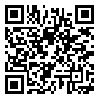Volume 30, Issue 4 (Autumn 2022)
Avicenna J Nurs Midwifery Care 2022, 30(4): 259-269 |
Back to browse issues page
Ethics code: IR.UMSHA.REC.1398.730
Download citation:
BibTeX | RIS | EndNote | Medlars | ProCite | Reference Manager | RefWorks
Send citation to:



BibTeX | RIS | EndNote | Medlars | ProCite | Reference Manager | RefWorks
Send citation to:
Eslami-Panah M, Torabi M, Borhani F, Abbaszadeh A. Relationship of Moral Climate and Moral Distress with Job Involvement among Nurses Working in Hospitals Affiliated with Hamadan University of Medical Sciences in 2020. Avicenna J Nurs Midwifery Care 2022; 30 (4) :259-269
URL: http://nmj.umsha.ac.ir/article-1-2430-en.html
URL: http://nmj.umsha.ac.ir/article-1-2430-en.html
1- Nahavand Paramedical Faculty, Hamadan University of Medical Sciences, Hamadan, Iran
2- Malayer School of Nursing, Hamadan University of Medical Sciences, Hamadan, Iran ,mo.torbi@umsha.ac.ir
3- Medical Ethics and Law Research Center, Shahid Beheshti University of Medical Sciences, Tehran, Iran
2- Malayer School of Nursing, Hamadan University of Medical Sciences, Hamadan, Iran ,
3- Medical Ethics and Law Research Center, Shahid Beheshti University of Medical Sciences, Tehran, Iran
Abstract: (4032 Views)
Background and Objective: Today, due to advances in science and technology and dealing with various moral issues, nurses experience more distress. Therefore, the behavioral framework of nurses and the quality of services provided to patients can be influenced by the ethical climate in the hospital. Moreover, the moral distress and moral climate in the hospital can influence the nurses' job involvement. Therefore, this study was conducted to investigate the relationship between moral climate and moral distress with the job involvement of nurses working in hospitals affiliated with Hamadan University of Medical Sciences, Hamedan, Iran.
Materials and Methods: This descriptive-correlational study was conducted on 140 nurses working in hospitals affiliated with Hamadan University of Medical Sciences. Data collection tools included a demographic information form, Hospital Ethical Climate Survey, Revised Moral Distress Scale, and Kanungo Job Involvement Questionnaire. Data were analyzed using descriptive and inferential statistics in SPSS 23 software.
Results: The mean score of the intensity of moral distress was 3.81±1.25 and the frequency of moral distress was 2.6±1.3. The mean scores of moral climate and job involvement were 3.91±1.68 and 2.71±1.1, respectively. There was a significant positive relationship between moral climate and nurses' job involvement (r=0.41, P<0.001). A significant negative relationship was observed between the intensity of nurses' perceived moral distress and their job involvement (r=- 0.36, P=0.03).
Conclusion: According to the research findings, it can be noted that reducing moral distress and improving the hospital's moral climate can play important roles in improving nurses' job involvement.
Materials and Methods: This descriptive-correlational study was conducted on 140 nurses working in hospitals affiliated with Hamadan University of Medical Sciences. Data collection tools included a demographic information form, Hospital Ethical Climate Survey, Revised Moral Distress Scale, and Kanungo Job Involvement Questionnaire. Data were analyzed using descriptive and inferential statistics in SPSS 23 software.
Results: The mean score of the intensity of moral distress was 3.81±1.25 and the frequency of moral distress was 2.6±1.3. The mean scores of moral climate and job involvement were 3.91±1.68 and 2.71±1.1, respectively. There was a significant positive relationship between moral climate and nurses' job involvement (r=0.41, P<0.001). A significant negative relationship was observed between the intensity of nurses' perceived moral distress and their job involvement (r=- 0.36, P=0.03).
Conclusion: According to the research findings, it can be noted that reducing moral distress and improving the hospital's moral climate can play important roles in improving nurses' job involvement.
Type of Study: Original Research |
Subject:
Challenges of ethics in care
Received: 2022/03/1 | Accepted: 2022/06/22 | Published: 2022/12/1
Received: 2022/03/1 | Accepted: 2022/06/22 | Published: 2022/12/1
Send email to the article author
| Rights and permissions | |
 |
This work is licensed under a Creative Commons Attribution-NonCommercial 4.0 International License. |







 gmail.com
gmail.com